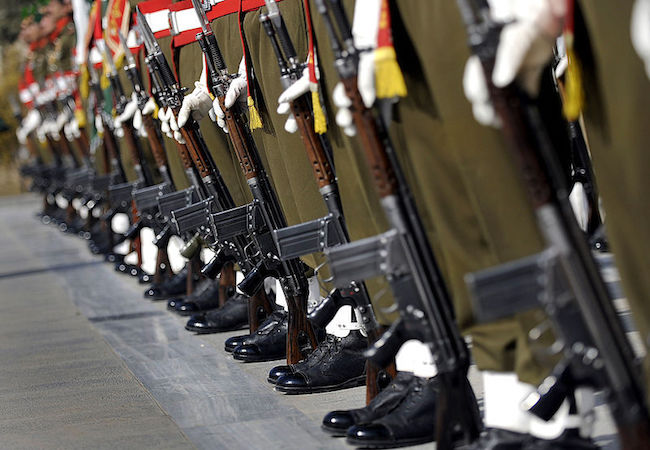
By Shahzadi Tooba Hussain Syed
Gen Qamar Javed Bajwa assumes charge as Pakistan’s sixteenth army chief and Gen Zubair Mehmood Hayat is now the 17th Chairman Joint Chiefs of Staff Committee.
The succession may not immediately bring about a major change in policies, but it could still have important implications at regional level, for ties with India and Afghanistan, and on domestic level for the civil-military equation and the ongoing fight against terrorism.
The foremost priority would be fight against terrorism, and consolidation of the gains made in this fight. Terrorist attacks in Mohmand Agency and Gwadar on the day Gen Bajwa was named were in themselves reminder that the fight was still not over. It is believed that Gen Bajwa, as his colleagues say, is a firm opponent of extremism and terrorism. He may prove even more forceful in the fight against terrorism than his predecessor, who is credited with launching Operation Zarb-i-Azb, which helped lower the frequency of terrorist attacks.
Another immediate issue requiring the new army chief’s attention would be the situation on the LoC, where the violence has escalated over the past two months, even though the relationship has generally been tense ever since Narendra Modi came to power in India. The army chief is credited with having spent a considerable part of his military service in the Rawalpindi-based 10 Corps, which is responsible for guarding the Line of Control (LoC). The X Corps is an active military administrative corps of Pakistan Army, currently assigned in Rawalpindi, Punjab Province of Pakistan. As an ode to Lt. General Aftab Ahmad Khan (pioneer of the X Corp), the insignia of the X Corps features a Rising Sun with 10 rays extruding from it. However, his time at the 10 Corps was a period of relative quiet following the 2003 ceasefire accord. This experience could prove invaluable as he takes command amidst serious escalation on the LoC, which saw some of the intense skirmishes since 2003.
He would then have to take stock of the situation in Balochistan and the Karachi operation. Additionally, he’d be required to take position on the awaited Punjab operation, which could not be launched during his predecessor’s period, despite pressure exerted by the military.
The later, Gen Zubair Mehmood Hayat, a three-star general, served as director general of the Strategic Plans Division (SPD), which is the secretariat of the NCA, and Bahawalpur corps commander. This made him an ideal choice for the post of CJCSC, which has an almost exclusive jurisdiction over Pakistan’s nuclear forces and assets.
Theoretically, the CJCSC has to be the senior-most four-star officer from any of the three services — army, navy and air force. However, since the establishment of the NCA, the army has staked a claim to its leadership, because it controls the key areas of nuclear command and strategic assets. The CJCSC is also the deputy chairman of NCA’s deployment committee, which is headed by the prime minister.
The basis of the decision to appoint a senior military officer as Chairman JCSC was firstly because of numerical strength of the Army which makes almost 80 percent of three services and it’s logical to give this post to a military officer. Secondly, Pakistan’s war strategy is land-based thus it felt essential to appoint a military office to this position; thirdly, controlling and supervising Pakistan’s strategic assets by Pakistan Army and as such it was felt that the military officer should be appointed Chairman JCSC. Lastly, the Pakistan Army deals at international level with leaders of top powers besides sending its troops for UN peacekeeping force and as such it was felt essential that the office of Chairman JCSC must be occupied by a senior military officer at all times.
So the office of Chairman JCSC has become very important and it would be a big challenge for highly able General Zubair Hayat, who had served as DG SPD and thus has full knowledge of Pakistan’s strategic assets, to meet future requirements of the country and maintain high level military acumen in that context besides dealing with affairs of the three services. While the office of CJCSC is technically the more senior position — as he serves as the principal military adviser to the prime minister and the National Command Authority (NCA) — the office of army chief is the most prized and arguably the most powerful position in the country and both have regarding their experience a lot to tackle with in the near future.




